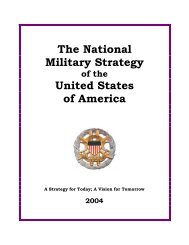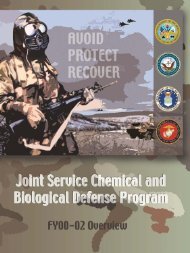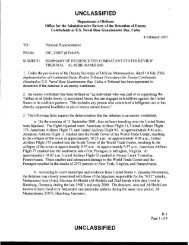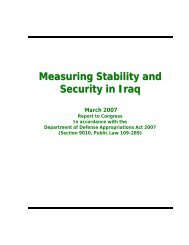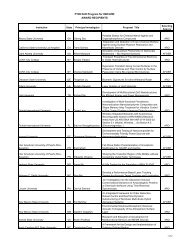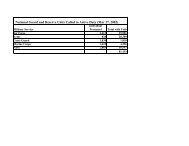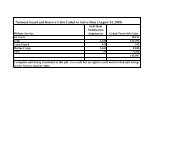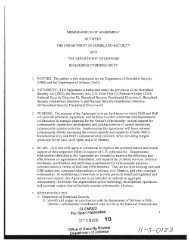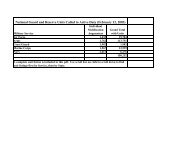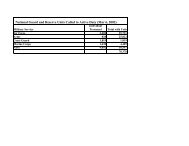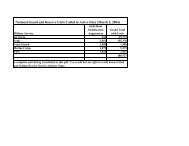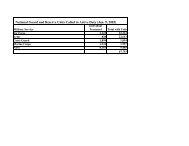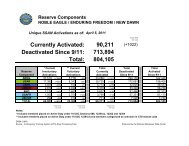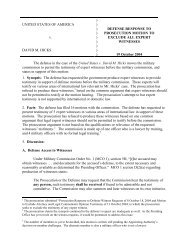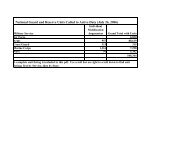Report - United States Department of Defense
Report - United States Department of Defense
Report - United States Department of Defense
You also want an ePaper? Increase the reach of your titles
YUMPU automatically turns print PDFs into web optimized ePapers that Google loves.
UNCLASSIFIED<br />
this reporting period. The PRC is also an active participant in the ongoing Istanbul process, and<br />
PRC representatives attended the ministerial conference in Kabul in June 2012.<br />
5.5: RUSSIA<br />
Russia seeks a stable Afghanistan to minimize the threat <strong>of</strong> terrorism and stem the flow <strong>of</strong><br />
narcotics into Central Asia and the Northern Caucasus. Russia has also supported Afghan-led<br />
reconciliation and reintegration efforts. Based on a commitment made at the November 2010<br />
NATO Summit in Lisbon, Russia continues to expand the types <strong>of</strong> cargo shipped by rail and air<br />
via the NDN and also permits the reverse transit <strong>of</strong> goods back through the NDN.<br />
Russia recognizes terrorism as being closely intertwined with narcotics trafficking. Hence,<br />
Russia’s interest in expanding CN cooperation has continued with its participation in multilateral<br />
meetings, UNODC programs, and calls for greater international support for CN efforts in<br />
Afghanistan. The NATO-Russia Council plans to expand its Central Asian CN program, which<br />
trains CN personnel from Central Asia, Afghanistan, and now Pakistan, in Russia, Turkey, and<br />
via mobile training teams.<br />
Russia supported Afghanistan’s bid for observer status within the SCO and has welcomed that<br />
designation. This has highlighted the increasing emphasis Russia places on regional cooperation<br />
mechanisms for economic, development, and security in Afghanistan as ISAF draws down.<br />
5.6: IRAN<br />
Iranian determination to have a long-term role in Afghanistan is consistent with its aspirations<br />
for regional influence. Iran continues to call for the permanent withdrawal <strong>of</strong> all foreign forces<br />
from regional nation-states. Iran’s attempts to influence events in Afghanistan includes overt<br />
support for the Afghan Government; economic and cultural outreach to the Afghan population,<br />
particularly to the Shi’a minority populations; and covert activities, including the provision <strong>of</strong><br />
weapons and training for various insurgent and political opposition groups.<br />
Politically, Iran seeks to maintain positive relations within the highest levels <strong>of</strong> GIRoA while<br />
attempting to steer Afghanistan away from an enduring Bilateral Security Agreement with the<br />
<strong>United</strong> <strong>States</strong>. In addition to maintaining a diplomatic presence in Afghanistan, Tehran <strong>of</strong>ten<br />
uses high-level visits and key leadership engagements to criticize the presence <strong>of</strong> international<br />
forces in Afghanistan and to call for the withdrawal <strong>of</strong> ISAF publicly. Various Afghan <strong>of</strong>ficials<br />
continue to solicit further Iranian support, despite evidence <strong>of</strong> Tehran’s covert support to<br />
insurgents.<br />
Since 2001, Iran has pledged more than $1B in aid to Afghanistan and given more than $500M.<br />
Iran’s reconstruction and development efforts have been largely concentrated in western<br />
Afghanistan. Iran’s intent is to increase its influence among the local population in order to<br />
foster pro-Iranian sentiment. Iran also wants to expand its sphere <strong>of</strong> influence beyond border<br />
regions into other parts <strong>of</strong> Afghanistan, particularly Kabul. Iran currently maintains consulates<br />
in Herat, Jalalabad, Kabul, Kandahar, and Mazar-e-Sharif and is considering opening additional<br />
179



